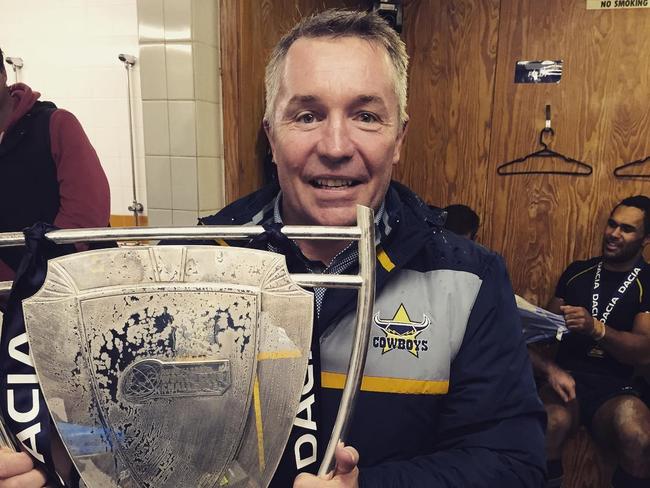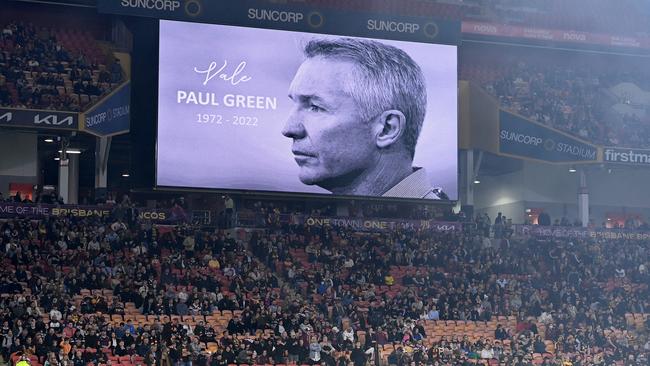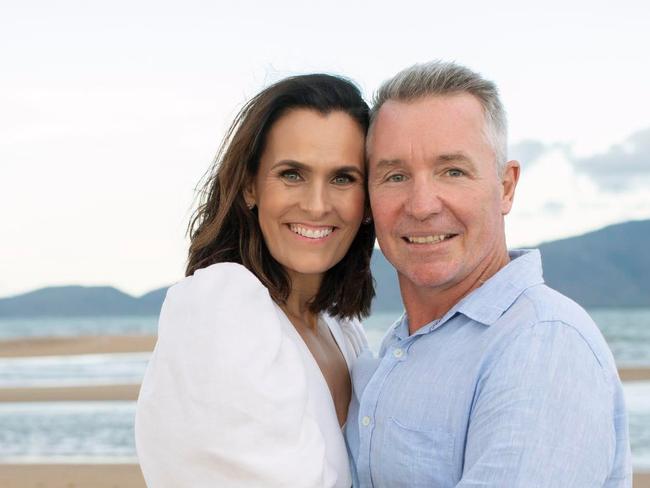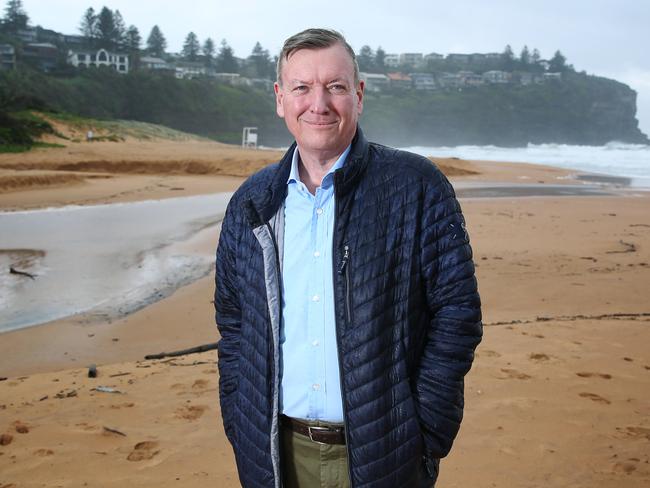Paul Green’s death shows us just when we think no one cares, we do, says John Brogden
Those who loved Paul Green are asking themselves many questions. Why him? Why now? But his death shows us just when we think no one cares, we do, writes John Brogden.
Opinion
Don't miss out on the headlines from Opinion. Followed categories will be added to My News.
The people who loved and admired Paul Green are asking themselves many questions. Why him?
Why now? Why didn’t I do something to help? Why didn’t I see it coming?
How did this happen to someone so successful as Paul Green?
Very few in Rugby League – in fact in any sport – play or coach at first grade. Even fewer get to be in an NRL Grand Final team and then coach one. Paul Green did.
My friends from his playing era who caught up with him recently at the 2022 Roosters Grand Final reunion and Sharks players get together didn’t see “it” in their mate enjoying past games and glories.
So, amongst the loss, anguish, grief and guilt there is now only one question left to ask – how do we make sure it doesn’t happen again to someone we know or love.
Today another eight Australians will die by suicide.

Six men will take their own lives today. Men complete suicide at a higher rate than women who have a higher attempt rate.
There are many and different reasons men take their life. Shame. Relationships. Careers. Money.
Addiction. Self-worth. The perception of failure in your eyes and the eyes and opinions of others.
Being successful young is a magnificent success and a magnificent burden. The average life of an Australian man is 81 years. If you end a successful sports career in your late 20’s or early 30’s you’re a long time alive. Some players and athletes can stay in their sport in coaching, management or commentary, however for most their next career lies outside the sport that has dominated almost every part of their life.

Too many men see themselves through their career, their job – and its success or failure. The stuff on the side – the rest of your life – comes second to your sport, your job, your business or profession.
Women are better balanced across their life. We men are not. So, for many men if our career fails, our life fails.
The highlight of my Rugby League career was on the halfway line three benches back cheering on the Balmain Tigers at Leichhardt Oval on a sunny winter afternoon.
For me it was politics. I was elected to Parliament at 27, a Shadow Minster at 30 and Leader of the Opposition on my 33rd birthday.
At 35 I stuffed up, resigned and tried to kill myself. I thank God every day I am still alive. I know now what I didn’t know then – there is more to life than your job. But back then when my career failed I was filled with so much shame I thought that not simply the only way - but the best way - to fix my problems and end my shame was to take my own life. For those who loved me, cared for me and supported me I had become their burden and I had to end that.
I was wrong. I was loved and we do get a second, third and fourth chance in life.

Some people may think that Paul Green’s suicide was an act of selfishness. How could he do this to his wife, children, family, friends and supporters? I only ask one thing of you – please do not overlay rational thought over the most irrational of all acts.
Things will never be the same for Paul’s family and friends. So, in their grief - and in our sadness - let us commit to making sure we do everything we can to save people who, in the darkest corner of their life and feeling they are an unfixable burden on others, turn to suicide.
The reality is most suicides are preventable. But we think there is nothing we can do to help
someone who is mentally unwell or suicidal. People say they aren’t a doctor, nurse or psychologist.
They worry they could make things worse.
You don’t have to be a heart surgeon to help someone having a heart attack, so why do you have to be an expert to help someone struggling mentally or feeling suicidal?

At Lifeline, and in the mental health world, all our experience and research shows that asking the direct question – Are you feeling suicidal? Do you want to kill yourself?, Do you want to hurt yourself? – is the best way to cut through.
Not another beer, the races or a movie. Not a distraction. A direct question. And if they say yes, ring 000, Lifeline (13 11 14) or get them to an emergency department. Don’t leave them. Treat them in the same way you’d treat someone who had a heart attack in front of you.
So here’s the rub men. There is no shame to being mentally ill. I live with suicidal ideation and depression. I take medication and see my psychiatrist once or twice a month. I’m not perfect, but I have many more good days than bad.
The real shame for you and those you love and who love you is not to get the help you need when you need it. Paul Green’s death shows us just when we think no one cares, we do.
John Brogden is the Patron of Lifeline Australia.



